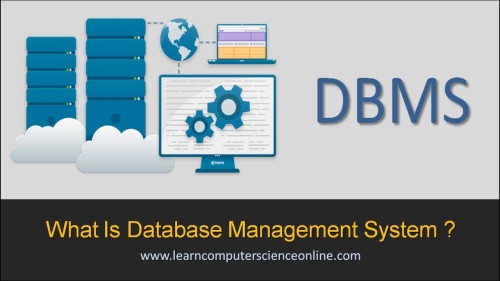 Database management system
Database management system
Published 11/2024
Created by Prashant Adiver
MP4 | Video: h264, 1280x720 | Audio: AAC, 44.1 KHz, 2 Ch
Genre: eLearning | Language: English | Duration: 9 Lectures ( 6h 34m ) | Size: 3.12 GB
database management system covering ER diagram, normalization and transaction management system
What you'll learn
Learn basics of DBMS
Draw the ER diagram
Write sql queries on there on own on given database
Understand the topic related to transaction management
Requirements
Computer Basics
Mathematically Skills related to set theory
Need computer to access the resources
Description
A Database Management System (DBMS) is a important tool for businesses because it helps to store, manage, and protect data efficiently. Here are some reasons why DBMS is important

ata integrity: DBMS enforces rules for how data is entered and stored to ensure its accuracy. This is important for transactions because it ensures the database is consistent before and after a transaction.Data security: DBMS protects data from unauthorized access, manipulation, and theft. It also ensures data availability and prevents Denial of Service attacks.Data backup: DBMS provides a way to back up and restore a database if it's corrupted or lost. Most DBMSs support both logical and physical data backup.Scalability: DBMS can scale to support more data and users as an organization grows.Data sharing: DBMS allows users to access and see data and changes to it. This allows users to respond quickly to updates.Data integration: DBMS combines data from different locations to give users a unified view of the information.Data storage: DBMS transforms entered data into required data structures.This course is designed to help the students to known about database management system which is widely used in software development. Database management is often used as backend to store and process thousands of records in faster way as compared with traditional file system. This course will help the students to known about basics of database, how to draw ER diagram, mapping from ER diagram to relational model, normalization, transaction management system.
Who this course is for
Beginner who want to learn database
UG and PG students who are want to learn database
Working professionals who want to learn database
Homepage